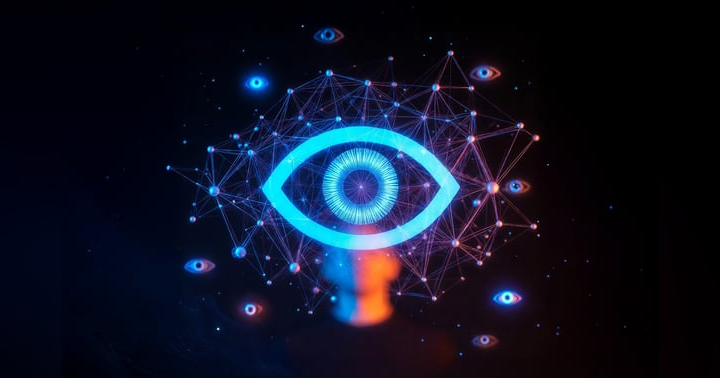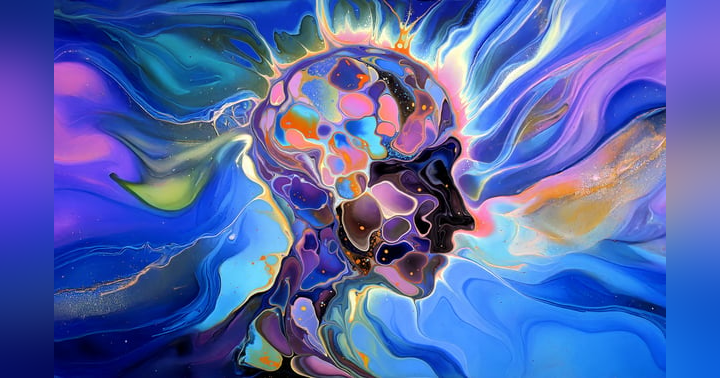Exploring the Universal Bizarreness Thesis: Are We All a Little Crazy?

Welcome to the blog! In this post, we'll be diving deep into a fascinating idea known as the "Universal Bizarreness Thesis," primarily championed by philosopher Eric Schwitzgebel. This thought-provoking concept suggests that our minds are far stranger, less reliable, and more prone to systematic errors than we typically assume. Are we, in essence, all a little crazy? This blog post will explore the core tenets of this thesis, its implications for our understanding of consciousness, ethics, artificial intelligence, and even the possibility of alien minds, ultimately aiming to understand ourselves and the world around us more deeply. If you enjoyed this article and want to hear even more about this topic, be sure to listen to our latest podcast episode, Eric Schwitzgebel: A Weird World? Universal Bizarreness Thesis & Perplexities of Consciousness, where we discussed these issues in-depth with Professor Schwitzgebel himself.
Who is Eric Schwitzgebel?
Before we plunge into the intricacies of the Universal Bizarreness Thesis, let's briefly introduce the man behind the idea. Eric Schwitzgebel is a Professor of Philosophy at the University of California, Riverside. He's renowned for his work on consciousness, introspection, moral psychology, and the philosophy of mind. He is also a prolific blogger at "The Splintered Mind," where he shares his thoughts and insights on a wide range of philosophical topics. His diverse academic background and wide array of publications demonstrate his dedication to the fields of philosophy. Some of his notable works include "Perplexities of Consciousness" (2011) and "A Theory of Jerks and Other Philosophical Misadventures" (2019). His extensive work on introspection and our self-knowledge formed the basis of his theory of universal bizarreness. You can find more information about Eric and his work on his website.
The Core of the Thesis: Are Our Minds Reliable?
The Universal Bizarreness Thesis challenges a fundamental assumption we often make: that our minds provide us with a reasonably accurate and reliable representation of the world and ourselves. Schwitzgebel argues that this assumption is likely false. He posits that our cognitive processes, introspective abilities, and even our basic perceptions are subject to pervasive biases, distortions, and limitations. We are not the rational, self-aware beings we might believe ourselves to be.
Schwitzgebel doesn't necessarily claim that our minds are completely broken or useless. Instead, he argues that they are significantly more flawed and unreliable than we generally acknowledge. This unreliability stems from various factors, including the inherent complexity of the brain, the limitations of our cognitive capacities, and the influence of unconscious processes. Our understanding of the world is fundamentally limited by the machinery in which it is being processed.
Exploring the Mind-Body Problem and its Connection to Bizarreness
The Mind-Body Problem is the philosophical challenge of explaining the relationship between our mental states and our physical states. How can subjective experiences (like feeling pain or seeing the color blue) arise from physical processes in the brain? This age-old problem is deeply intertwined with the Universal Bizarreness Thesis. If we don't even understand how our minds emerge from our brains, how can we be confident that they are providing us with accurate or reliable information? It is also a problem that is difficult to define, but has some intuitive appeal.
Schwitzgebel suggests that the very fact that we struggle so much with the Mind-Body Problem could be evidence of the bizarreness of our minds. Our inability to bridge the gap between the subjective and the objective realms might indicate a fundamental cognitive limitation or a distorted perception of reality. The difficulty in understanding ourselves and consciousness in and of itself implies we do not have direct access to understanding or interpreting it. Perhaps our methods of self-reflection, like introspection, are fundamentally flawed.
Consciousness and the Self: A Murky Mirror?
Consciousness, that elusive and subjective experience of being, is central to the Universal Bizarreness Thesis. Schwitzgebel questions whether our conscious experience is a faithful reflection of what's "really" going on in our minds. He argues that our conscious awareness might be just the tip of the iceberg, with vast amounts of cognitive processing occurring beneath the surface. What we experience consciously might be a highly selective, filtered, and potentially distorted version of reality. We are not passive observers of the outside world, and we actively generate and interpret what we observe.
Furthermore, the concept of the "self" comes under scrutiny. The Universal Bizarreness Thesis challenges the notion of a stable, unified, and coherent self. Schwitzgebel suggests that our sense of self might be more fluid, fragmented, and constructed than we typically believe. He is not advocating for the non-existence of a self, but he is suggesting our perception of what that self is may be inaccurate.
The Unreliability of Introspection: Can We Truly Know Ourselves?
Introspection, the act of examining one's own thoughts and feelings, is often seen as a key tool for self-knowledge. However, Schwitzgebel argues that introspection is surprisingly unreliable. We are not always aware of our own motivations, beliefs, or cognitive processes. We may confabulate explanations for our behavior or hold inaccurate beliefs about ourselves. Introspection, in many cases, is like looking in a distorted mirror. Our interpretations of ourselves may be inaccurate.
This unreliability of introspection has profound implications. If we can't even accurately know our own minds, how can we hope to understand the minds of others? How can we make informed decisions about our lives? And how can we hold ourselves accountable for our actions?
Other Minds: Are They Just as Bizarre as Our Own?
The Universal Bizarreness Thesis extends beyond our individual minds to the realm of other minds. If our own minds are prone to systematic errors and distortions, it's reasonable to assume that other people's minds are as well. This leads to the unsettling possibility that we are all fundamentally misunderstanding each other to some degree. This also makes empathy a difficult endeavor. We cannot accurately simulate what it is like to exist as another person.
Schwitzgebel suggests that we should approach our interactions with others with a sense of humility and skepticism. We should be aware of the potential for miscommunication, misunderstanding, and biased judgments. This doesn't mean we should become completely cynical or distrustful, but rather that we should cultivate a more nuanced and realistic view of human cognition. We are inherently flawed.
Implications for Philosophy and Beyond
The Universal Bizarreness Thesis has far-reaching implications for various fields, including philosophy, psychology, ethics, and even artificial intelligence. In philosophy, it challenges traditional views of rationality, knowledge, and the nature of mind. It also has direct implications for science fiction, as it allows us to analyze and explore the nature of aliens in fiction through a philosophical lens.
In psychology, it suggests that our understanding of human behavior and cognition may be based on flawed assumptions. In ethics, it raises questions about moral responsibility, free will, and the reliability of our moral intuitions. In artificial intelligence, it forces us to consider the potential for biases and limitations in the AI systems we create. There are many areas of thought that can be explored when you consider the idea that our minds may be bizarre.
Ethics and the Bizarreness of Ethicists & Philosophers
One particularly provocative aspect of Schwitzgebel's work is his examination of the ethical behavior of ethicists and philosophers. He has conducted research suggesting that ethicists, despite their expertise in moral reasoning, do not necessarily behave more ethically than people in other professions. This raises unsettling questions about the relationship between ethical knowledge and moral action.
Schwitzgebel argues that this discrepancy may be due to the fact that ethical reasoning is often detached from real-world behavior. Ethicists may be good at constructing abstract moral arguments but may not be any better at translating those arguments into practical action. This underscores the bizarreness of our minds and the limitations of our rationality. There appears to be an inherent disconnect between thinking and doing.
The Thesis and Artificial Intelligence
As we develop increasingly sophisticated AI systems, the Universal Bizarreness Thesis becomes even more relevant. If our own minds are prone to biases and errors, it's likely that the AI systems we create will inherit those flaws. We must be aware of the potential for AI to perpetuate and amplify our own cognitive limitations.
Furthermore, the Universal Bizarreness Thesis raises questions about the possibility of creating truly "intelligent" AI. If intelligence is inherently intertwined with the peculiarities and limitations of the human mind, can we create AI that transcends those limitations? Or will AI always be constrained by the bizarreness of its creators?
The Copernican Principle of Consciousness and Alien Minds
Schwitzgebel also explores the implications of the Universal Bizarreness Thesis for the possibility of alien minds. Drawing on the Copernican Principle (which suggests that Earth is not a special or unique place in the universe), he argues that our own form of consciousness is likely just one of many possible forms of consciousness. Alien minds could be vastly different from our own, with entirely different ways of perceiving, thinking, and feeling.
This perspective challenges our anthropocentric biases and encourages us to be open to the possibility of radically different forms of intelligence and consciousness. It also underscores the limitations of our own understanding and the potential for unimaginable diversity in the universe.
Belief, Free Will, and the Bizarreness Thesis
The nature of belief and the existence of free will are two other areas where the Universal Bizarreness Thesis has significant implications. Schwitzgebel's work on introspection suggests that we may not always be aware of our own beliefs or the reasons for holding them. Our beliefs may be influenced by unconscious biases, social pressures, or even random factors. Our self-reflection can be inaccurate.
Similarly, the Universal Bizarreness Thesis raises questions about the extent to which we truly have free will. If our decisions are influenced by factors beyond our conscious control, how can we be held morally responsible for our actions? These are complex questions with no easy answers, but the Universal Bizarreness Thesis provides a valuable framework for exploring them. The mind can be described as bizarre because so much of its mechanisms occur outside of our realm of awareness.
Why This Matters: Understanding Ourselves and the World Around Us
The Universal Bizarreness Thesis is not simply an abstract philosophical concept. It has practical implications for how we understand ourselves, our relationships with others, and the world around us. By acknowledging the limitations and biases of our minds, we can become more humble, self-aware, and tolerant.
We can learn to approach our interactions with others with more empathy and understanding, recognizing that everyone is struggling with their own cognitive limitations. We can become more critical consumers of information, aware of the potential for bias and distortion in the media and in our own thinking. And we can develop more realistic and nuanced views of ourselves and our place in the world.
Conclusion
The Universal Bizarreness Thesis, as articulated by Eric Schwitzgebel, presents a challenging but ultimately valuable perspective on the nature of the human mind. By questioning our assumptions about rationality, self-knowledge, and the reliability of our cognitive processes, it encourages us to adopt a more humble, nuanced, and realistic view of ourselves and the world. While the implications of this thesis may be unsettling, they also offer the potential for greater self-awareness, empathy, and understanding.
As we continue to explore the mysteries of the mind, consciousness, and artificial intelligence, the Universal Bizarreness Thesis serves as a reminder that our understanding is always limited and that we should always be open to the possibility that our minds are stranger and more wonderful than we can currently imagine. Thanks for reading! Don't forget to check out our podcast episode, Eric Schwitzgebel: A Weird World? Universal Bizarreness Thesis & Perplexities of Consciousness, for an even deeper dive into these fascinating ideas. We talked with Eric Schwitzgebel and discussed these perplexing and bizarre notions in greater detail.








